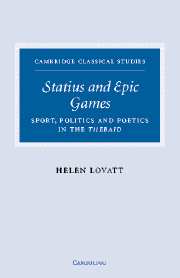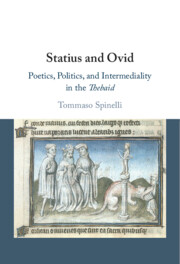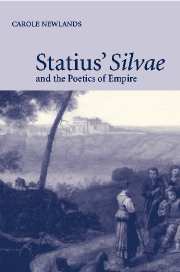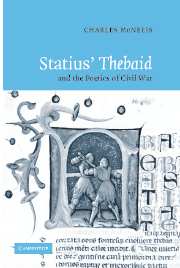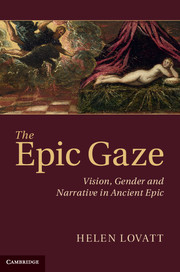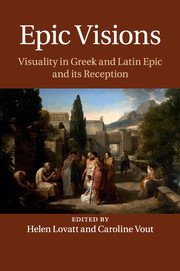Statius and Epic Games
Epic games are more than just an interlude; they reflect the realities of epic: heroism, power and war. This first major study of the athletic games in Statius' Thebaid Book 6 uses them to produce a new reading of the poem as a whole. It explores each event in Statius' games, discussing intertextual manoeuvres, historical context and poetic positioning, developing a theme from each: audience power, cosmic disruption, national identity, masculinity and the body, games and war, kingship and narrative control. This book uses a close reading of one part of one text to range over ancient literature. It casts light on the tradition of games in ancient epic as a whole, examining the works of Homer, Virgil, Apollonius, Ovid and Lucan. It is essential reading for the student of Statius and of ancient epic and of interest to historians of Roman society with an interest in sport and spectacle.
- Offers the first major study of the epic games in Statius with a close reading of Thebaid Book 6
- Extends a close reading of the Thebaid to offer new insights into the role of games in other ancient epics such as those of Homer, Virgil and Lucan
- Reflects on the role of sport and spectacle in Roman thought and society
Reviews & endorsements
"Helen Lovatt here takes on the challenge... and does so with two things rarely found together in scholarly writing, success and panache...the rich offerings Lovatt lays before the reader, combined with her impressive documentation and knowledge of decades' worth of scholarship, make this book an excellent tool for discussion in the seminar room." --BMCR
Product details
May 2005Adobe eBook Reader
9780511110238
0 pages
0kg
This ISBN is for an eBook version which is distributed on our behalf by a third party.
Table of Contents
- Introduction
- 1. The chariot race: epic games and real games
- 2. The running: audiences
- 3. The discus: gigantomachy
- 4. The boxing: national identity
- 5. The wrestling: bodies
- 6. The sword fight: games and war
- 7. The archery: controlling the narrative
- Conclusion.

